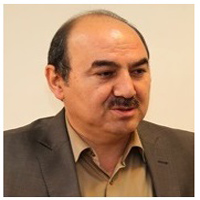Predicting changes in alexithymia of addicts from their spiritual intelligence
Author(s):
Abstract:
Introduction
The present study was conducted with the aim of predicting changes in alexithymia of addicts in Ardabil from their spiritual intelligence. Materials And Methods
The research design is applied as far as the goal is concerned and correlational in terms of data collection. The study population consists of all males with drug abuse which in December 2011 referred to treatment center in Ardabil city، from among whom، using a cluster sampling procedure a sample of 100 men (80 opium dependents and 20 heroin dependents) were selected to participate in the study. All participants responded to the Toronto alexithymia Scale and King’s Spiritual intelligence Self Report Inventory. All data were analyzed using descriptive statistics، Pearson’s correlation coefficients، and simultaneous and step by step multiple regression analyses. Results
Correlational analyses revealed that spiritual intelligence with three of its components (personal meaning production، transcendental awareness، conscious state expansion) was associated negatively (P<0. 05) with alexithymia. As regards inferential statistics، simultaneous regression analysis indicated that spiritual intelligence predicted 18% of the scores in alexithymia (P<0. 001). Step by step regression analysis revealed that of the four components of spiritual intelligence only two (conscious state expansion and personal meaning production) were able to predict alexithymia (P<0. 001). Conclusion
The findings of this study indicate that through the development of abilities of spiritual intelligence، emotion regulation can be partly facilitated and used as a defense against drug addiction. Furthermore، through the nurturance of such characteristics، addicted individuals can be helped to gain relief from their addiction.Keywords:
Language:
Persian
Published:
Journal of Fundamentals of Mental Health, Volume:16 Issue: 1, 2014
Pages:
3 to 11
https://magiran.com/p1266853
مقالات دیگری از این نویسنده (گان)
-
The effectiveness of a combined weight loss program on cravings and anthropometric indicators in women with obesity
Seyed Mohsen Nemati, *, Parviz Porzoor, Sajjad Basharpoor, Ghasem Fattahzade
Journal of Research in Behavioural Sciences, -
The effectiveness of the educational package to reduce academic burnout on reducing psychological distress and promoting the academic achievement of girl high school students.
Sodabeh Rafigh Irani, *, Asghar Nakhostin Goldoost
Journal of School Psychology,



